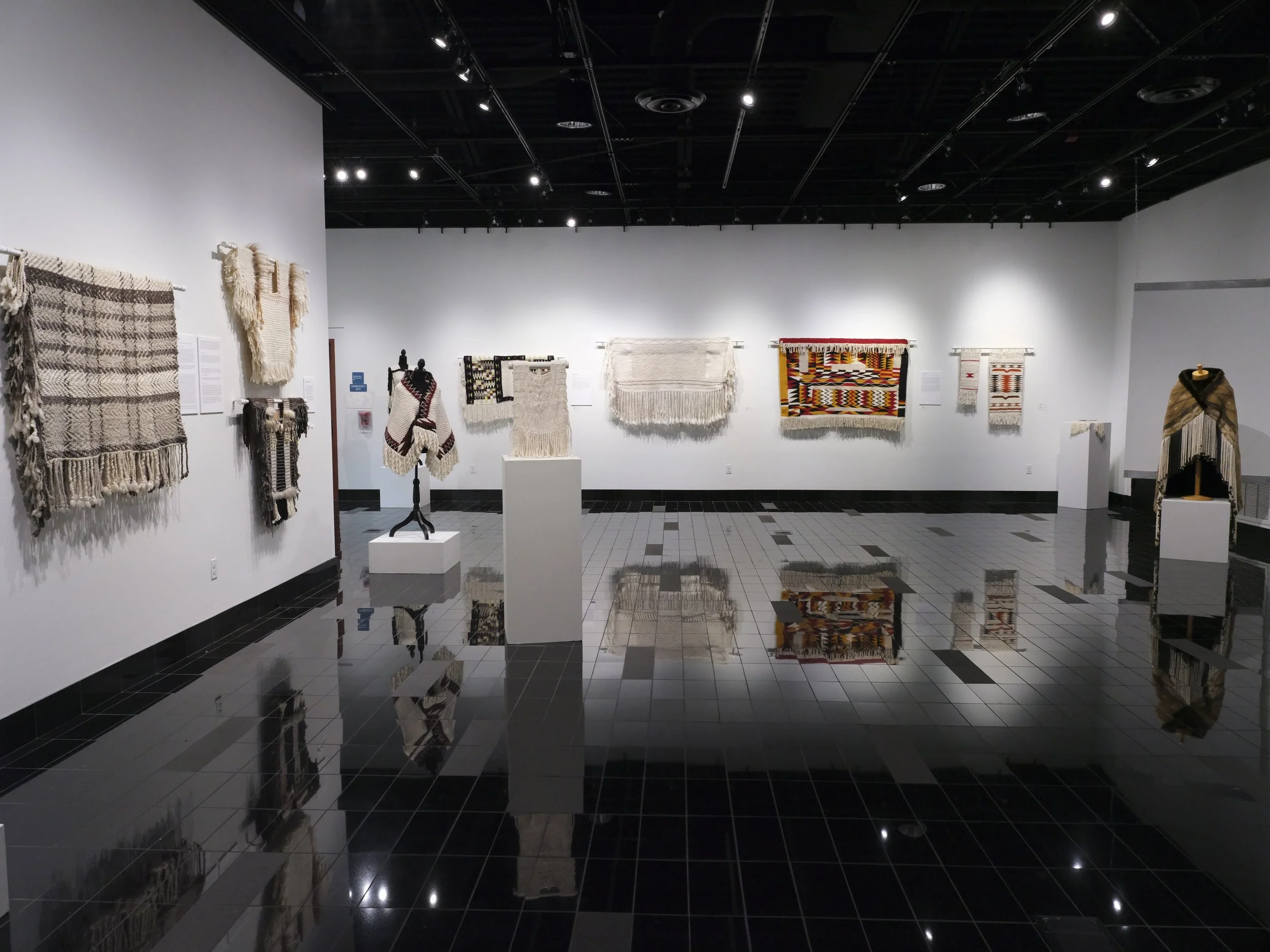A Weaver’s Voice
Leonor R. Fuller Gallery
November 7 – December 9, 2022
A Community Foundation
By Selena Kearney
This collection of Coast Salish wool weavings brings together weavers past and present from as far north as the Squamish Nation in British Columbia to the Skokomish Tribe in South Puget Sound. The weavings in this exhibition represent the depths of the artform's sleep in the 1960s—from a time when Coast Salish wool weaving was kept alive amongst a small number of individuals striving to keep pace with a changing world to a current revival brimming with excitement to fill a broken past and open a way for a prosperous future. Weavers throughout time and place take on the act of spinning fibers into strands and then weaving them to create a work that is gifted to a respected loved one. During the rich cultural past of Coast Salish communities, the woven blanket acted as a conduit and a metaphor for power, prestige, responsibility, and love. Countless hours of construction would culminate into the form of a blanket. The gravity of the blanket's symbolism would pull the community together in ceremony, bringing forward the possibility for transformation—the transformation of responsibility to individuals in love, the transformation of a young person coming of age, or the transformation from one world to another. The blanket is "placed onto" an individual to offer protection for this transformation. The currency of Coast Salish blankets offered a central focal point that wrapped the community in collective duty to one another.
The worldview surrounding Coast Salish wool weaving teaches the weaver that their mental state affects the weaving and its power. The weaver is conscious of their state of mind while working to produce a ceremonial weaving. The mental state the artist brings into a weaving's creation is carried on and embedded within the work. The responsibility of a good spirit is on both the weaver and the wearer; this exchange strengthens the bonds in Salish communities.
This exhibition brings oral accounts from the weavers on their process and the intentions behind the weavings displayed. Through interviews, the weavers are asked to speak on their process and intentions for their work. A focus on the commitment to and the care for others is present in the interviews, whether in receiving important teachings or helping a loved one move into another stage in life. The impact of the weaver's art on the lives of individuals is in clear focus when Tulalip weaver Taylor Henry speaks about being asked to do a memorial blanket. He remarks that " I can’t really put it into words yet, but it's the honor of somebody asking you to– and I’m speaking from a memorial perspective; it's the last thing we can do for a person, so it is a huge honor that they’ve thought of you, let alone ask you to weave for them.”
Coast Salish wool weaving extends from the personal to the historical with the work of Suquamish Elder Marilyn Wandrey. When asked why it was important for her to wear regalia to journey to the Heiltsuk Nation in Bella Bella in 1993, she remarks, “I just felt that the ancestors were all gathered around and were just so happy to see all of us preparing to go. Because we really had nothing in terms of a great culture. That had sort of been drawn out some years before when the white man came here and settled here. You know we had to go to their schools and not speak our language anymore. And so this was really important to me because I could just feel my ancestors around me and how happy they were. So I wanted to be able to stand there with something that reflected them. That woven shawl and that cedar hat made me feel like I was making them proud.”
Today, aided by technology, we are more connected than ever. Yet paradoxically, the cost of this connection is isolation and loneliness. Weaving offers a form of interconnectedness with a slow focus on care for one another. The Coast Salish worldview lifts weaving up as an essential system to hold sacred our interconnectedness and to wear with honor the responsibility of the ones who depend on us.








